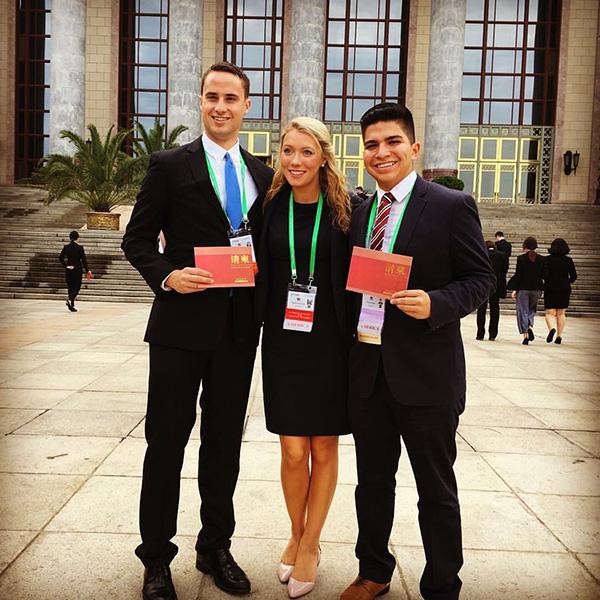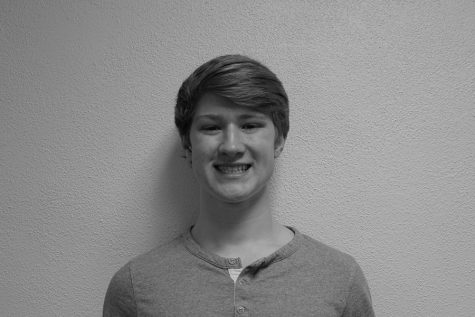Park graduate spurs social change
Alumnus eases political tension at UC-Berkeley

Used with written permission from William Morrow
Park alumni William Morrow represented the official delegation to the 2016 Y20 World Youth Summit in Beijing and Shanghai. Morrow is on track to graduate from the University of California-Berkeley this spring.
According to Park alumnus William Morrow, who now serves as the student body president at the University of California-Berkeley, his time on student council at Park was an invaluable experience.
“The student council at Park was a great crash course in learning to engage with people and programming,” Morrow said. “On that front, I have continued with many similarities even on this larger stage representing upwards of 30,000 students.”
However, Morrow said there are significant differences between the role of a class president at Park and that of a student body president at a large public university.
“One fundamental difference that makes Berkeley unique is the role that Berkeley has for shaping the agenda for even the national scene,” Morrow said. “This is a place where social activism starts, which makes it very different from student government in high school. ”
According to Morrow, numerous social movements trace their roots back to the UC-Berkeley campus.
“To put things in perspective, the Anti-Apartheid movement gained a lot of steam from the UC-Berkeley student government divesting from South Africa,” Morrow said. “Similarly, UC-Berkeley was one of the first sites for really empowering the Black Lives Matter movement.”
Morrow said his Park education helped prepare him to tackle the ever-changing social climate of today.
“Being in a school like SLP provides students with the benefit of a public education, but more importantly a public education that is not afraid to tackle some of the biggest questions in society,” Morrow said. “Learning how to navigate an ever changing landscape on that (social) front has been helpful.”
According to Morrow, the strength of his peers at Park helped prepare him for the college experience.
“Getting out of the St. Louis Park bubble, you realize just how passionate, driven and diverse of a student body we have at St. Louis Park,” Morrow said. “This has been helpful to me in making a transition to one of the most eclectic university experiences in the country.”
On Feb. 1, demonstrators gathered at UC-Berkeley to protest the arrival of Breitbart editor Milo Yiannopoulos for a Campus Republicans event. According to CNN, these demonstrations took a violent turn and resulted in over $100,000 of damages.
“In wake of the Milo Yiannopoulos event on Feb. 1 and the ensuing discourse that occurred that night, there have certainly been high tensions between students, faculty, and members of the community on our campus,” Morrow said. “These tensions get at root values of free speech, inclusivity, fairness and equity.”
According to Morrow, he took action to ease the resulting tensions in the Berkeley community and make all students feel welcome.
“One thing that I’ve tried to do as student body president is to work with the diverse and wide ranging student groups who feel a vested interest in what happened that day in order to work to reconcile some differences of thought or belief,” Morrow said. “I have tried to present myself as a resource for all students as they try to navigate this tough political climate.”
According to Morrow, President Donald Trump’s threat to cut funding to UC-Berkeley is symbolic of the new administration’s aim to stifle social activism.
“It is no mistake that the President of the U.S. tweeted about cutting public funds to Berkeley, as Berkeley is a university that is historically significant for its political activism,” Morrow said.

Hey guys, I'm William and I will be a writer and photographer for the Echo this year. The thing that I am most excited for this year is The FitnessGram™...


